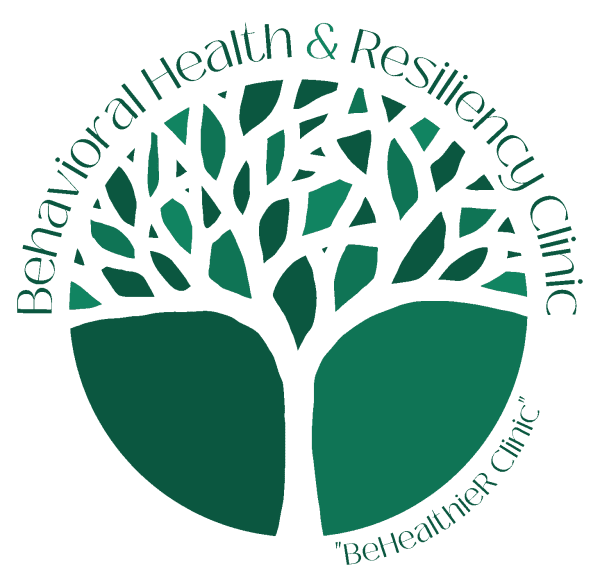BeHealthieR Clinic
The BeHealthieR Clinic is OPEN for the Spring Semester of 2024! We will be holding drop-in stress reduction sessions every other Tuesday at 11:30 or at 1 pm; other groups are taking place as well! Our assessment clinic will be in operation Tuesdays and Fridays. We will have a receptionist on site on Monday, Tuesday, and Friday morning during the spring semester to receive phone calls, answer questions, and schedule appointments. However, we respond to emails throughout the work week. Emailing the clinic is the fastest and most reliable way to contact us and get service. Please reach out! The preferred way to reach us is via email at behealthierclinic@charlotte.edu.

The Behavioral Health and Resiliency Psychology Clinic, also called the “BeHealthieR Clinic,” is a low-cost mental health outpatient clinic. The clinic’s purpose is to: 1) provide quality psychological services at a reasonable cost and 2) serve as a training facility for doctoral clinical students in the Health Psychology Ph.D. program at UNC Charlotte. Currently, we are offering select services to members of the UNC Charlotte community. In the future, we plan to expand our services to the broader Charlotte area.
The BeHealthieR Clinic is staffed by graduate students and faculty from the Clinical Health Psychology Ph.D. program at UNC Charlotte. Dr. Jennifer Langhinrichsen-Rohling is currently serving as the Clinic Director. Graduate student clinicians are supervised by licensed clinical faculty members, many of whom serve on the clinic’s leadership team: Dr. Laura Armstrong, Dr. Jennifer Langhinrichsen-Rohling, Dr. Amy Peterman, Dr. George Demakis, Dr. Jennifer Webb, and Dr. Aimee Smith.
We are growing! Currently, our main offerings include:
- Individual Therapy (typically 6-12 sessions per client)
- Psychoeducational Group therapy (see our calendar for services – more coming!)
- DROP-IN for a stress reduction session (Mondays)
- Guided Meditation Sessions (Tuesdays)
- Cognitive Behavioral Therapy for Insomnia (CBTi) groups (once per semester, see calendar)
- Accept Yourself – Body Image Group (Monthly group session on Mondays during the Spring of 2024)
- Resilience Enhancing groups (3 sessions, as requested)
- Empowered Relief groups for pain
- An assessment clinic
- Student-athlete assessment
- LD/ADHD assessment
The Behavioral Health and Resiliency Clinic was founded with a mission to increase access to mental health services and promote wellness among diverse populations in a safe and affirming environment. We strive to be culturally humble, responsive to the unique needs of each individual we serve, intentionally inclusive of all intersecting identities, and to actively combat systemic oppression, prejudice, marginalization, discrimination, and other forms of intolerance in all the work we do.
Our Clinic Reception and Waiting Room is located in Colvard Hall, SOUTH, 4th Floor, Room 4077.
The preferred way to reach us is via email at behealthierclinic@charlotte.edu.
Or via phone at 704-687-7919. If you are calling at a time we are not staffed with a receptionist, please leave a message so we can return your call!
If you are looking for Counseling and Psychological Services at UNC Charlotte, please call 704-687-0311.
For immediate mental health crisis services, please call the NAMI NC HelpLine at 800-451-9682, the National Suicide Hotline at 800-273-8255, or dial 9-1-1.
UNC Charlotte Land Acknowledgment
With respect to the land and people who preceded us, the University of North Carolina at Charlotte acknowledges that we are on colonized land traditionally belonging to the Catawba, Cheraw, Sugeree, Wateree, and Waxhaw Peoples, all of whom have stewarded this land throughout the generations. Before this land was colonized and named the city of Charlotte, it was used as a place of meeting and trade by a diverse group of Indigenous peoples, including the Catawba, Cherokee, Congaree, and Saponi. We also acknowledge that the greater Charlotte region has directly profited from the enslavement and forced labor of African people and their descendants. We recognize that knowing, acknowledging, and honoring the history of the land and the people is only the first step. We must support and listen to Indigenous and Black voices, while continuing to address the policies and practices that perpetuate oppression. For the full UNC Charlotte Land Acknowledgement please click here.